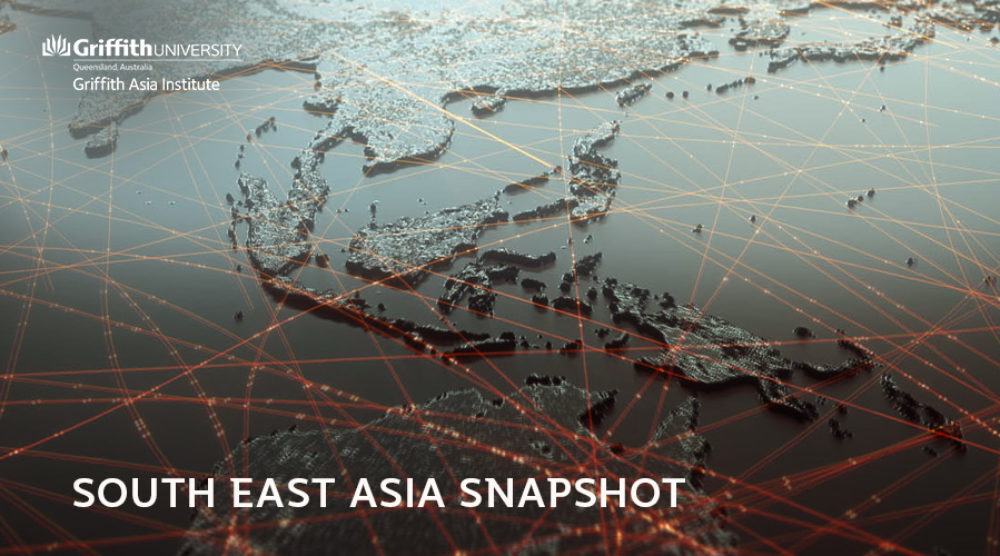South East Asia’s views on Pelosi visit to Taiwan
In a surprising move the United States Speaker of the House of Representatives, Nancy Pelosi, visited Taiwan on 2 August as ASEAN was hosting its 55th ASEAN Ministerial Meeting in Phnom Penh. The trip quickly brought the world’s attention to the rise of geopolitical tension between the US and China.
This visit has angered Beijing, which viewed the trip as a diplomatic provocation, defies the US’s acknowledgment of the “One-China” policy, and violates Chinese territorial sovereignty. China quickly condemned the visit and responded with sanctions on Pelosi and her family members and live-fire drills― the largest military exercise ever conducted around Taiwan.
The US, on the other hand, defended the trip, stating that Pelosi had the right to visit as the US Congress is independent of the White House, meaning Pelosi visited of her own accord. Taiwan warmly welcomed Pelosi’s visit as an assurance of US support for democracy on the island. This sudden visit also drew responses from the region.
Indonesia expressed concern over the visit as it could lead to confrontations and disrupt global peace and stability if not managed well. The Indonesian Foreign Ministry had encouraged all actors to disengage from any provocative behaviour that could escalate tensions. Thailand, Laos, Cambodia, Malaysia, Vietnam and the Philippines have all reiterated their support for the One-China policy and called for de-escalation. Singapore hoped for the US and China to show restraint and work out ways to peacefully coexist in the region to avoid potential spill-over impacts from this visit. Myanmar’s junta stood with China in opposition to any provocative actions.
ASEAN urged both the US and China to practice utmost restraint to avoid escalations that could lead to misunderstandings, serious confrontations, or result in negative impacts on all sides. The regional bloc expressed readiness to provide a platform for diplomatic dialogue to ease tensions.
Similar plans for a British Member of Parliament to visit Taiwan in late 2022 had been reported, but reaction to Pelosi’s visit may change this given the view that these visits are an attempt to question and destabilise China’s integrity. The event, and China’s response to it, have been branded as a no-win for China by some observers, while others advised ASEAN to have a unified stance on the China-US tension as any further instability could threaten its member states.
Pelosi’s visit to Taiwan has undoubtedly exasperated US-China relations. ASEAN must remain cautious, using neutrality to avoid the geopolitical contestation between the two powers.
Outcomes of the 55th ASEAN Ministerial Meeting
The 55th ASEAN Ministerial Meeting (AMM) concluded on 6 August with a joint communique. The communique focused on fostering peaceful coexistence and tackling the current regional and international concerns, including COVID-19, the situation in Myanmar, tension in the South China Sea, the war in Ukraine, and the recent visit of US House Speaker Nancy Pelosi to Taiwan.
The meeting convened positively regarding the ASEAN Comprehensive Recovery Framework and ASEAN’s COVID-19 recovery efforts. ASEAN members further encouraged the operationalization of the ASEAN Regional Reserve of Medical Supplies for Public Health Emergencies.
On the Myanmar issue, ASEAN member states agreed to prohibit the junta from the bloc’s meeting until progress of the five-point consensus is made. ASEAN foreign ministers condemned the junta’s lack of progress on the peace plan that was agreed to last year, demanding immediate action before November’s ASEAN Summit. The ministers also condemned the execution of the pro-democracy activists with the ASEAN Chair agreeing that these executions are a setback to the peace plan and that they will rethink their engagement if such violence continues.
The South China Sea was discussed, highlighting concerns about the continued incidents in the region that have not only corroded mutual trust among relevant actors but have also damaged the marine ecology. The ASEAN joint communique called for the recognition of the UNCLOS as a clear legal framework for all activities carried out on the South China Sea.
On the conflict in Ukraine, the ASEAN Chair firmly expressed concern about the global rising economic difficulties due to the war between Russia and Ukraine. The bloc encouraged the respect of diplomatic independence, sovereignty, and territorial rights in accordance with the United Nations Charter. ASEAN also called for the immediate cessation of violence and a stronger focus on diplomatic dialogue and humanitarian assistance for the vulnerable in Ukraine.
The meeting saw divisions between members spill over following Pelosi’s visit to Taiwan, with the bloc issuing a joint statement affirming their stance on the One-China policy and urging all parties concerned to refrain from provocative action in adherence to the principles of the ASEAN Treaty of Amity and Cooperation (TAC).
Views on the success of the meeting are varied. Some have recommended that the bloc internationalize the Myanmar issue given the Malaysian Foreign Minister’s proposal prohibiting the junta from any meetings in the future. Cambodia has been congratulated for successfully chairing the meeting, which resulted in a joint communique, seen by some as redemption for the Kingdom’s inability to produce a statement when last in this position in 2012. Criticism continues, however, with some demanding that ASEAN needs to do more than just host talks.
This AMM had a significant agenda of regional and international crises to contend with, as reflected in the joint statement. The dialogue and statement can be viewed as a successful step in progressing toward the ASEAN Summit in November 2022 where the ASEAN states will undoubtedly have to continue cautious navigation of regional challenges.
Sovinda Po is a Research Assistant at the Griffith Asia Institute.








